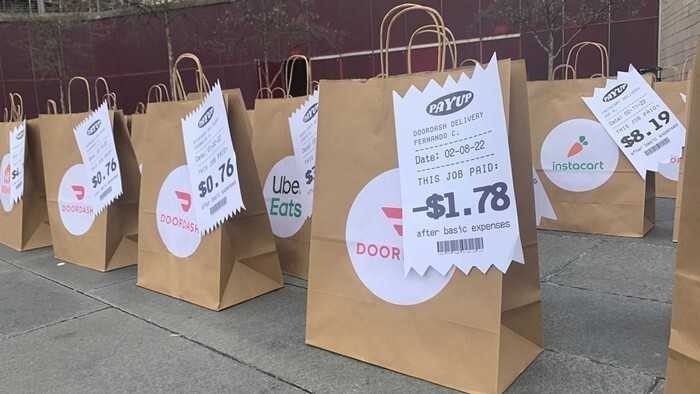The New York Times and every other outlet reports that a jury found Donald Trump guilty on all 34 counts in the hush-money case leveled against him by Manhattan District Attorney Alvin Bragg. The jury found that Trump falsified business documents to conceal a $130,000 payment to keep porn star Stormy Daniels quiet on the matter of her "sexual liaison" with Trump. The verdict makes Trump somehow the first American president ever convicted of a felony. According to the Times, the former president "sat largely expressionless, a glum look on his face, after the jury issued its verdict."
The sentencing hearing is scheduled for July 11—just four days ahead of the Republican National Convention—but "he could receive probation when he is sentenced, and he is certain to appeal the verdict—meaning it may be years before the case is resolved," the Times reports.
Nevertheless, I'm guessing we're ten minutes away from a "lock him up :)" tweet from Hillary Clinton.
I'm sure his troops will rally around him, but for now his investors are not:
*DONALD TRUMP FOUND GUILTY AT NEW YORK HUSH MONEY TRIAL$DJT plunges pic.twitter.com/VDSJeJ9ViM
— Katie Greifeld (@kgreifeld) May 30, 2024
Now to the Official Statement Parade before we discuss potential impacts on the election.
You won't be surprised to learn that Trump slipped in a little anti-Semitic nonsense in his post-verdict statement, blaming the "Soros-backed" lawyer and the Biden Administration for the "rigged trial."
Full Trump reaction outside courthouse to guilty verdicts ... pic.twitter.com/IE9W7vP49K
— Howard Mortman (@HowardMortman) May 30, 2024
The Biden-Harris campaign said "no one is above the law," but they emphasized that the only way to keep Trump out of office is to beat him at the ballot box:
Biden-Harris Campaign Statement on Today’s Verdict pic.twitter.com/TEmdNsPmzP
— Biden-Harris HQ (@BidenHQ) May 30, 2024
Washington State Attorney General and gubernatorial candidate Bob Ferguson slammed "Dave Reichert's candidate for president" and kept banging on with his law-and-order messaging:
Laws matter in this country. Dave Reichert's candidate for president just got convicted of 34 felonies. I'm running for Governor to uphold the law. America must not elect a convicted felon for president.
— Bob Ferguson (@BobFergusonAG) May 30, 2024
Okay, now, to address the two burning questions: Will he be able to vote for himself in November, and to what extent will these 34 felony convictions change Trump's chances of winning the election?
On the former question, Washington Post columnist Catherine Rampell reports that Trump could vote for himself so long as he's not in prison, since Florida's law barring felons from voting doesn't apply to convictions outside the state.
On the latter question, 538 political analyst Nathaniel Rakich argues that the conviction might hurt Trump a little, but not for a long time. A look at polls that asked voters if they'd still support or cast a ballot for a felonious Trump found that the former president loses five points of support while Biden only gains one point. So, it's not like people would be jumping from Trump to Biden; they'd throw their votes away on other candidates instead. But, as Rakich argues, one point ain't nothing, especially in a race this close.
My vote for the best conclusion:
Hochul should pardon him in November so it can’t be overturned on appeal.
— Dan Riffle (@DanRiffle) May 30, 2024




















